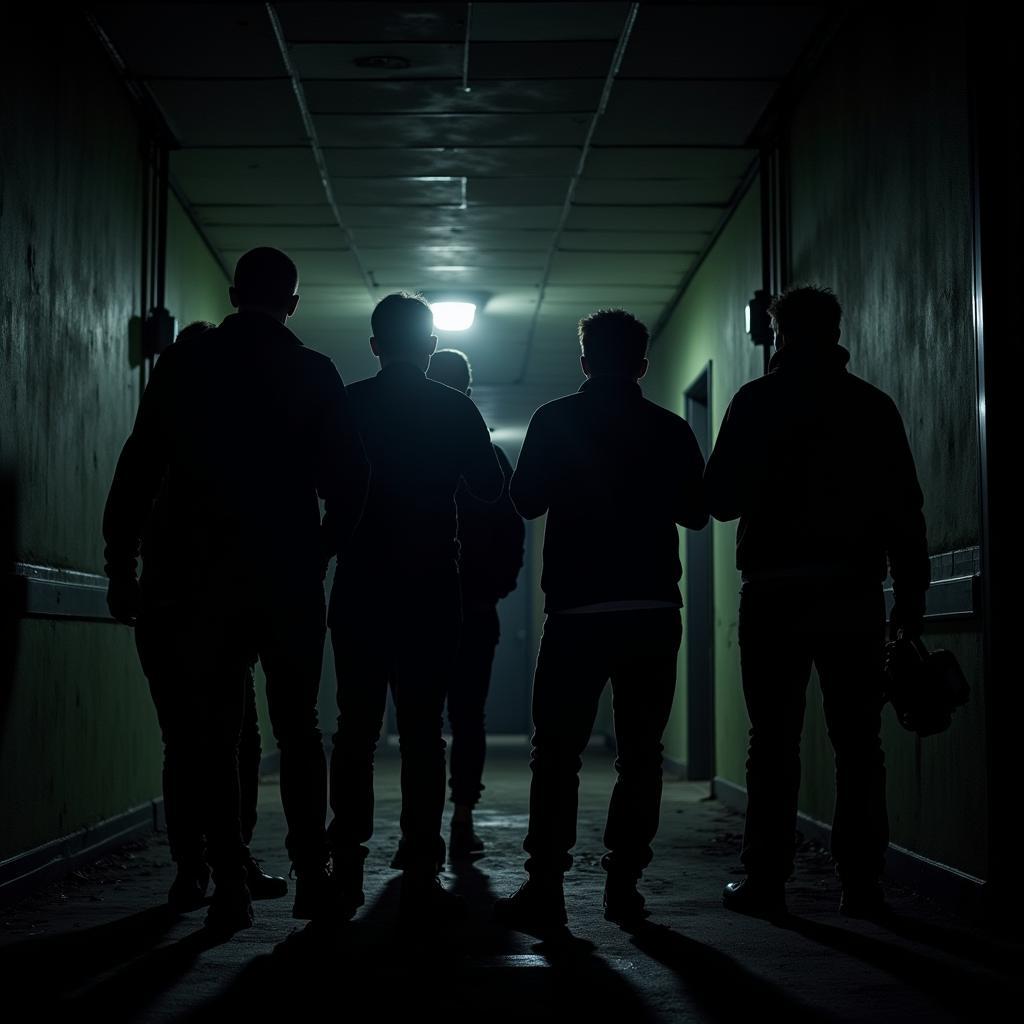The allure of the unexplained has captivated humankind for centuries, driving us to seek answers beyond the realm of the ordinary. “Paranormal Research Programmes” offer a structured and systematic approach to investigating these mysteries, providing a framework for exploring the unknown. These programmes, encompassing a diverse range of methodologies and areas of study, strive to shed light on phenomena that defy conventional explanation.
Unveiling the Mysteries: Types of Paranormal Research Programmes
Paranormal research programmes are as diverse as the phenomena they investigate. Some focus on specific occurrences like:
- Ghost Hunting: These programmes investigate reports of hauntings, attempting to document paranormal activity through a combination of eyewitness accounts, electronic voice phenomena (EVP) recordings, and electromagnetic field (EMF) readings.
- Cryptozoology: This fascinating field delves into the study of creatures not yet recognized by mainstream science, such as Bigfoot or the Loch Ness Monster. Researchers often employ a combination of eyewitness interviews, footprint casting, and wildlife cameras in their pursuit of evidence.
- Ufology: Dedicated to the study of unidentified flying objects (UFOs), these programmes meticulously analyze eyewitness reports, photographic and video evidence, and radar data to determine the nature and origin of these aerial anomalies.
Other research programmes adopt a broader perspective, exploring areas such as:
- Extra-sensory perception (ESP): This field investigates abilities like telepathy, clairvoyance, and precognition, often using controlled experiments to assess the validity of these purported phenomena.
- Parapsychology: Encompassing a wide range of paranormal phenomena, parapsychology investigates experiences that suggest the existence of consciousness or abilities beyond the scope of current scientific understanding.
The Scientific Approach to the Paranormal: Methodologies in Research Programmes
While the subject matter may seem inherently unscientific, many paranormal research programmes emphasize rigorous methodologies to ensure the integrity of their investigations:
- Data Collection and Analysis: Researchers meticulously gather evidence from various sources, including eyewitness accounts, audio and video recordings, and environmental readings. This data undergoes thorough analysis to identify patterns, anomalies, and potential explanations.
- Controlled Experiments: In areas like ESP research, controlled experiments aim to isolate and test specific abilities under controlled conditions, minimizing the influence of external factors and subjective bias.
- Skeptical Inquiry: A healthy degree of skepticism is crucial to any scientific endeavour, and paranormal research is no exception. Researchers often approach investigations with a critical eye, seeking alternative explanations for observed phenomena before attributing them to paranormal causes.
Navigating the Paranormal Landscape: Choosing a Research Programme
For those intrigued by the world beyond the veil, participating in a paranormal research programme can be an enriching experience. Here’s how to find one that aligns with your interests:
- Identify Your Interests: Are you drawn to ghost hunting, cryptozoology, or a broader exploration of unexplained phenomena? Narrowing your focus helps you target relevant programmes.
- Research Programmes in Your Area: Many organizations and groups conduct paranormal investigations locally. Online searches and social media platforms can help you connect with them.
- Consider Your Experience Level: Some programmes welcome beginners, while others cater to experienced researchers. Choose one that suits your current knowledge and skills.
 Paranormal Investigation Team
Paranormal Investigation Team
The Importance of Ethical Considerations
Ethical conduct is paramount in paranormal research, ensuring the well-being of all involved and maintaining the integrity of investigations. Researchers should:
- Obtain Permission: Always seek permission before investigating private property or conducting research involving human subjects.
- Respect Privacy and Confidentiality: Protect the identities and personal information of individuals involved in investigations, especially when dealing with sensitive experiences.
- Transparency and Objectivity: Report findings accurately and objectively, avoiding sensationalism or exaggeration.
Beyond the Search for Evidence: The Value of Paranormal Research Programmes
While the search for concrete evidence of the paranormal remains a driving force, these programmes offer value beyond definitive answers:
- Fostering Critical Thinking: Investigating paranormal claims encourages critical thinking skills, requiring researchers to evaluate evidence, consider alternative explanations, and form reasoned conclusions.
- Expanding Our Understanding: By exploring the boundaries of our current knowledge, paranormal research challenges us to question assumptions, consider new possibilities, and remain open to the mysteries that lie beyond our current grasp.
Conclusion
Paranormal research programmes, with their diverse methodologies and areas of study, offer a structured and engaging approach to exploring the unexplained. Whether driven by a desire for evidence, a thirst for knowledge, or simply a fascination with the unknown, these programmes provide a platform for investigating the mysteries that continue to captivate and intrigue us.
Frequently Asked Questions (FAQs)
1. Is paranormal research dangerous? While investigations often take place in potentially hazardous environments, prioritizing safety and taking necessary precautions minimizes risks.
2. What qualifications are needed to join a paranormal research programme? Many programmes welcome enthusiasts of all experience levels. Specific skills, like data analysis or technical proficiency, may be beneficial for certain investigations.
3. Have paranormal research programmes ever found definitive proof of the paranormal? While compelling evidence exists, definitive proof remains elusive. The nature of paranormal phenomena makes conclusive findings challenging to obtain.
4. What should I do if I experience something paranormal? Document the experience in detail, noting the date, time, location, and any sensory details. Consider contacting a reputable paranormal research organization for guidance.
5. Can Paranormal Research be considered a science? The debate continues. While rigorous methodologies are often employed, the subjective nature of paranormal experiences and the difficulty of replicating findings pose ongoing challenges.
Need Assistance with a Paranormal Investigation? Contact us 24/7 at Phone Number: 0904826292, Email: [email protected] or visit our office at No. 31, Alley 142/7, P. Phú Viên, Bồ Đề, Long Biên, Hà Nội, Việt Nam. Our dedicated team is here to help.